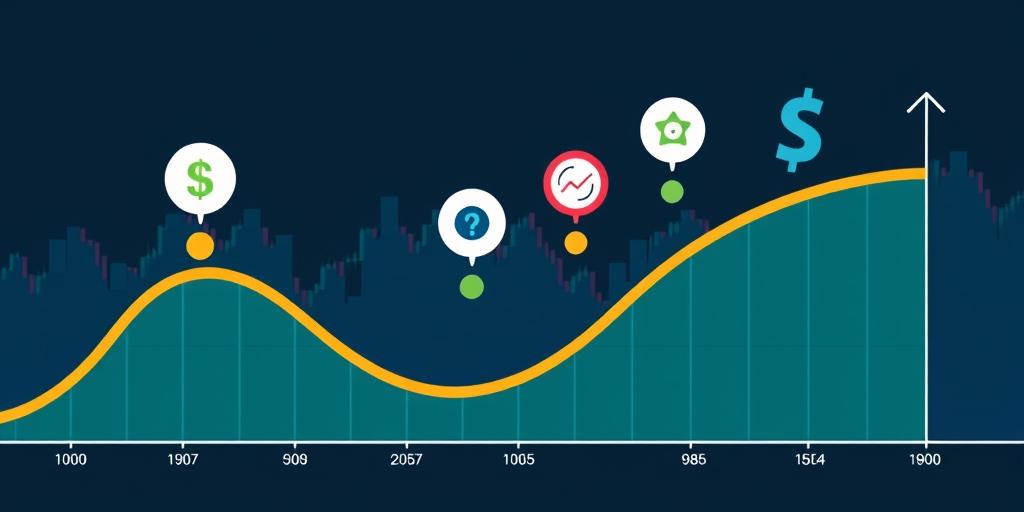Navigating the Market's Emotional Rollercoaster: From Euphoria to Despair
The stock market is often described as a rollercoaster, but it's not just the price fluctuations that create this feeling. It's the emotional highs and lows that investors experience along the way. Understanding these emotions and how they influence decision-making is crucial for successful investing.
The Cycle of Market Emotions
The market often moves in cycles, driven by collective investor sentiment. These cycles can be broken down into several key emotional stages:
- Euphoria: This is the peak of the market cycle, characterized by widespread optimism and a belief that prices will continue to rise indefinitely. Investors often throw caution to the wind, driven by the fear of missing out (FOMO).
- Anxiety: As the market starts to show signs of weakness, euphoria gives way to anxiety. Investors become more cautious and begin to question whether the bull market can continue.
- Denial: Despite mounting evidence to the contrary, many investors remain in denial, clinging to the hope that the market will recover quickly. They may rationalize their losses and avoid selling their positions.
- Fear: As losses mount, anxiety turns into fear. Investors become increasingly worried about the prospect of further declines and may start to panic sell their holdings.
- Despair: This is the bottom of the market cycle, characterized by widespread pessimism and a belief that prices will never recover. Investors are often completely demoralized and may abandon the market altogether.
- Hope: As the market begins to show signs of life, despair gives way to hope. Investors become more optimistic, but they remain cautious and may be hesitant to reinvest.
- Relief: As the market continues to recover, hope turns into relief. Investors breathe a sigh of relief as their portfolios begin to recover.
How Emotions Impact Investment Decisions
Emotions can have a significant impact on investment decisions. During periods of euphoria, investors may become overconfident and take on excessive risk. They may also be tempted to chase high-flying stocks without doing their due diligence.
Conversely, during periods of fear and despair, investors may become overly risk-averse and sell their positions at the worst possible time. This can lock in losses and prevent them from participating in the subsequent recovery.
Strategies for Managing Market Emotions
- Develop a sound investment strategy: A well-defined investment strategy can help you stay focused on your long-term goals and avoid making emotional decisions based on short-term market fluctuations.
- Diversify your portfolio: Diversification can help reduce your overall risk and protect your portfolio from the impact of market downturns.
- Stay informed, but don't overreact: It's important to stay informed about market developments, but avoid getting caught up in the daily noise. Focus on the long-term trends and avoid making knee-jerk reactions to short-term events.
- Seek professional advice: If you're struggling to manage your emotions, consider seeking the help of a qualified financial advisor. A financial advisor can help you develop a sound investment strategy and provide objective guidance during periods of market volatility.
- Practice Mindfulness: Mindfulness techniques, such as meditation or deep breathing, can help you become more aware of your emotions and manage them more effectively. By recognizing your emotional triggers, you can avoid making impulsive decisions based on fear or greed.
By understanding the emotional cycle of the market and developing strategies for managing your own emotions, you can become a more successful investor and navigate the market's ups and downs with greater confidence.









